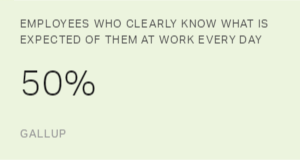Like many states, Rhode Island is a complex place. Founded as a bastion of religious tolerance, it boasts beautiful beaches and prestigious higher education institutions, such as Brown University. Yet it has a checkered political and social history, particularly in the last several decades.
"At the heart of the matter in Rhode Island is corruption," says Mike Ritz, executive director of Leadership Rhode Island (LRI), a nonprofit community leadership organization. "The perception here is that it's entrenched and powerful."
With leaders such as former Providence Mayor Vincent "Buddy" Cianci forced to resign twice because of felony convictions and former Rhode Island House Speaker Gordon Fox serving time on corruption charges, the culture of malfeasance may have marred the psyche of Rhode Island residents.
LRI regularly polls its members about their perceptions of the state's weaknesses, and Ritz says that corruption is always at the top of the list, leading to a despondency that manifests itself in multiple ways.
"When confidence is low, then you don't have people willing to take risks, you don't have confidence in the marketplace, you don't have people making decisions around growth," Ritz says. "They continue to make decisions around shrinkage or preparing for the worst rather than building something to be the best that it can be."
One particular effect of this low confidence, Ritz says, was that Rhode Island had the highest percentage of actively disengaged workers -- higher than any other state, according to Gallup's 2013 State of the American Workplace report. Actively disengaged employees are unhappy at work and can hinder their organization's growth. They monopolize managers' time, account for more quality defects and quit at a higher rate than engaged employees.
In the same study, Gallup found that Rhode Island had the sixth lowest percentage of engaged employees in the nation. Engaged workers are involved in and enthusiastic about their work. They are passionate and creative, and their enthusiasm fuels growth and innovation.
On a Mission to Improve the State
To attack this problem, LRI embarked on a multiyear initiative to boost engagement in Rhode Island workplaces. Ritz says the organization uses the Clifton StrengthsFinder (CSF) as a tool to strengthen engagement and enable Rhode Island to be the first strengths-based state in the country.
The CSF is an online assessment that ranks an individual's 34 innate talent themes, with a focus on developing the top five. This practice has been catching on in all corners of Rhode Island, from manufacturing businesses to major universities, from the upper reaches of Rhode Island's National Guard to the governor's office itself.
"I am a big believer that it's important to own whatever your strengths and weaknesses are, to broadcast them to the team, and everybody should know that," says Rhode Island Gov. Gina Raimondo. "That's what the StrengthsFinder is all about … so we can work together better as a team to get more things done and -- oh, by the way -- be happy. I want people showing up to work fired up to get the job done. We're on a mission to improve Rhode Island."
Raimondo, in office since January, is a proponent of the CSF along with her "Lean initiative," which is based on the Japanese Kaizen principle of continuous improvement. She believes the CSF helps to implement this broader Lean strategy in Rhode Island. She points to early results with the Department of Labor and Training as a sign of success, citing sharply decreased telephone wait times for unemployment insurance customers. The average wait time dropped from 42 minutes when she took office to about seven minutes by the end of September.
Scott Jensen, director of Rhode Island's Department of Labor and Training, says that his department used to have "the worst-administered unemployment insurance program in the country." When it came to processing unemployment benefits, he joked, "We were worse than Guam … (though) Guam didn't have an unemployment insurance program, I found out."
Jensen says that by identifying his team's strengths along with implementing Lean principles, he was able to boost processing of eligibility determinations from 14% in a 21-day period to 76% processed in that same time frame. This was a testament, he says, to Rhode Island finally tapping into the strengths that make it a great place.
"Rhode Island beats up on itself too much," Jensen says. "I think they don't realize how competent they are … the talent and the opportunity are here for a big turnaround."
Strengths: The Great Equalizer Among Workers
From a business standpoint, Karl Wadensten, president of VIBCO Vibrators, has implemented the CSF in a memorable way at his company: Employees display their top five strengths on a card at their workstations. A tour of his factory -- where VIBCO makes vibrators for industrial and construction use -- shows strengths are a great equalizer among workers. Parts manufacturers not only display their strengths but also can tell you how they use them in their daily life. Administrators discuss how their strengths complement those of others on their team.
Wadensten says bringing in the CSF was a strategic decision that has paid off for his company. He promotes strengths as a way to "get a handle" on the organization, saying, "This is a piece that will strip away a lot of mystery in everything." He adds that strengths give teams a starting point in understanding each other and how they can best work together.
Steve Duvel, vice president and Rhode Island district operations manager at construction firm Gilbane, says he used Gallup strengths-based training through LRI. Over a two-year period, he saw an 18% increase in employees in the Rhode Island business unit who would say their company is a great place to work, according to results from the Fortune Great Place to Work survey.
"Morale is very important, and positive people are way more successful in building buildings on time," Duvel says. However, the company was having issues with morale in 2013. Gaining a strengths-based perspective has since helped employees view their differences in a more positive light. "We have a diverse group of strengths and blended the strengths together, and that's what was responsible for boosting our engagement," he says.
Rhode Island officials also are keen on ensuring members of underserved communities reach their full potential. Claudia Cardozo, a bilingual strengths coach for LRI, says that the unemployment rate among Latinos in the state is disproportionately high and that language barriers may hamper Latinos and other minority community members from getting jobs. She says she is coaching them to help them use their strengths to do their best.
"I'm fascinated about strengths in that it teaches people they are unique," Cardozo says. "That it helps them to take the right steps to excel. People who may be at a disadvantage sometimes need all the tools they can to excel."
Foreseeing a Statewide Strengths Groundswell
Starting with this year's freshman class, Providence College will begin providing the CSF to its entire student body. Through follow-up coaching, administrators say they will be able to drive home the value of why students should learn their strengths.
"When we tell them there's proof from Gallup that says if you're using your strengths, you're going to be more engaged in the work that you do -- I think you get that interest right away because they're looking for that," says Patti Goff, assistant vice president for integrated learning and administration at Providence College.
Janet Coit, director of the Rhode Island Department of Environmental Management, sees a groundswell for strengths in government and across the state. "I would love to see strengths spread, with people on the streets talking about what Rhode Island has going for it," she says, "and how proud they are to be in this little diverse state and lead with talking about the good things rather than bemoaning the bad things."
Brig. Gen. Marcus Jannitto, Deputy Adjutant General, Rhode Island National Guard, says he is cultivating strengths among service members in his command, and he also foresees this groundswell overtaking the state. "Part of what we're trying to do with StrengthsFinder and Leadership Rhode Island is to make people aware," Jannitto says. "And to look at positive things. Because we can be very negative here in the state."
Rhode Island is showing progress in employee engagement. Gallup finds it has gone from having the highest percentage of actively disengaged workers in 2012 to 11th highest on this measure in 2013 and 2014.
The future for Rhode Island is very bright, especially as residents embrace their strengths and what makes them unique, Ritz says.
"I see the strengths in myself and in others. That inspiration is what gets people to work together more effectively and to reach their dreams," Ritz says. "If we could get everyone in the state, all 1 million of us -- to know and use their strengths, how powerful that becomes. Incredibly powerful."


